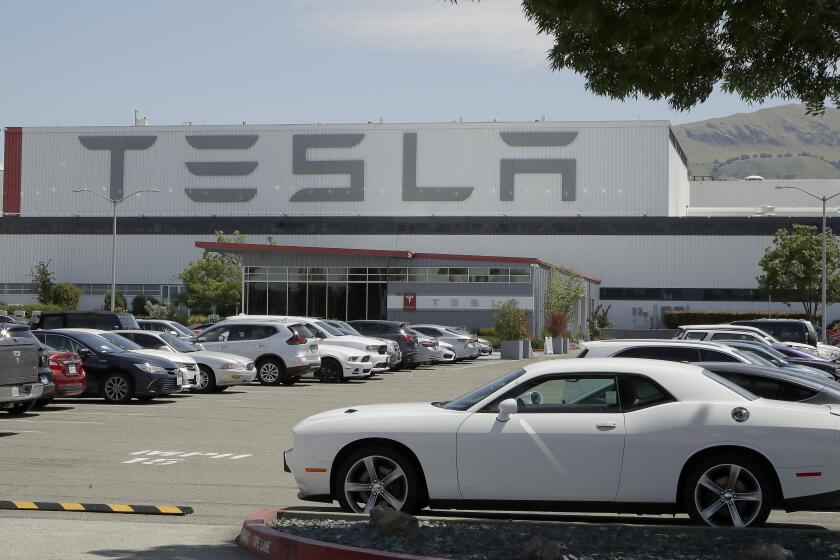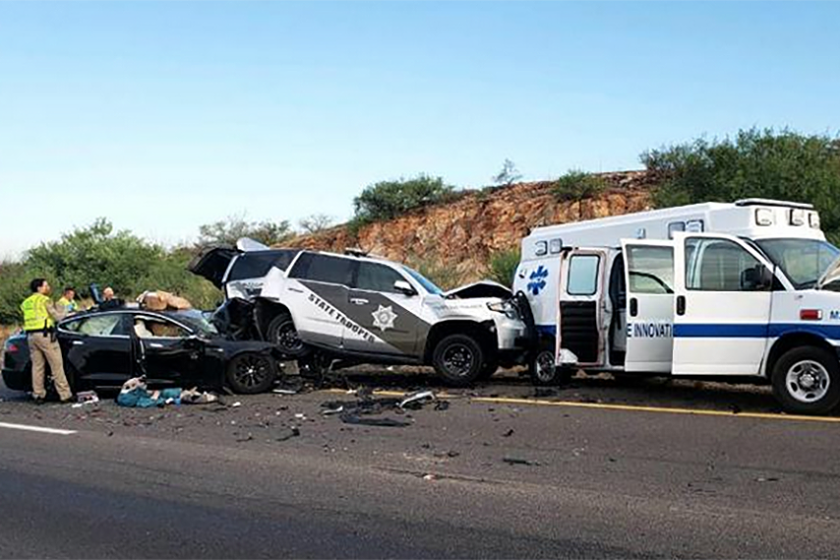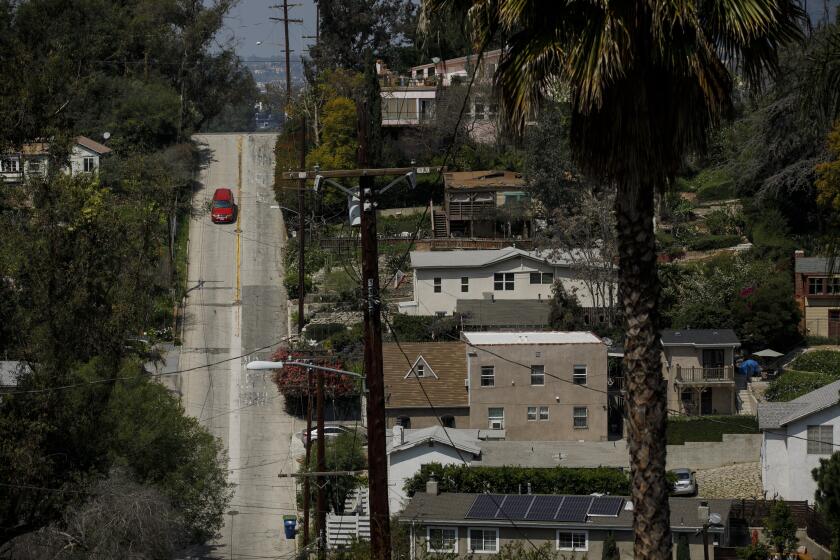Black Tesla employees describe a culture of racism: ‘I was at my breaking point’
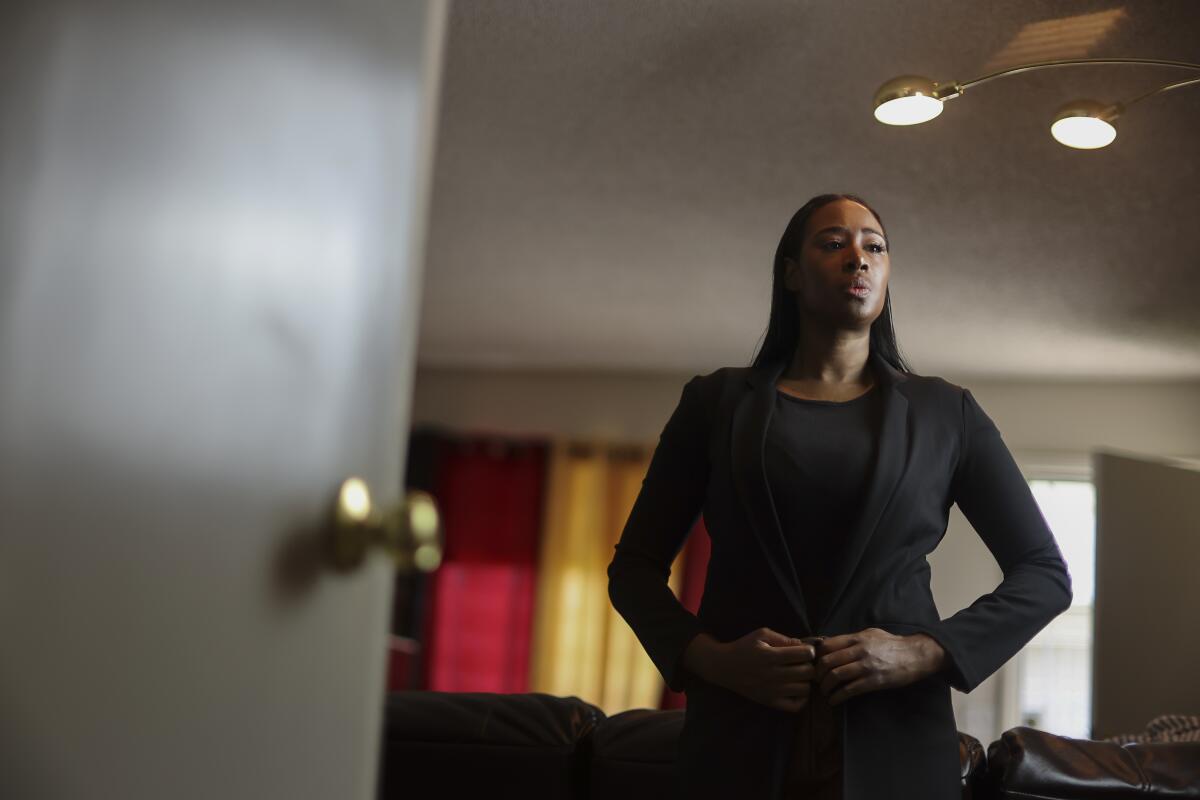
Warning: This story quotes several racist slurs allegedly directed at Black workers at Tesla’s California plant, according to a lawsuit filed against the company.
A single mother was excited to land a job at Tesla. About three years in, she was fired, she said, after complaining that Black workers were frequently called the N-word on the assembly line.
A former refinery worker couldn’t wait to get into green energy. She said she soon found herself and other Black workers assigned to the most arduous tasks in a corner of the factory co-workers called “the plantation.”
An Army veteran was promoted to a fleet manager job. He said he was fired after he complained that his boss called him and two Black co-workers “monkeys.”
In interviews with The Times, three Black former employees described how jobs at the pioneering automaker devolved into personal nightmares due to a pattern of rampant racism and harassment at Tesla’s Fremont, Calif., factory.
Their accounts expand on allegations in a Feb. 9 lawsuit filed by the California Department of Fair Employment and Housing on behalf of more than 4,000 current and former Black workers at the world’s most valuable car company — the largest racial discrimination suit ever brought by the state by number of workers affected.
The three former employees describe a workplace where racist slurs in English and Spanish were often aimed at Black employees by co-workers and supervisors, as alleged in the lawsuit. They say Tesla segregated Black workers into separate areas, gave them the hardest tasks and routinely denied them promotions.
And they allege that when they informed the company about racist treatment, their complaints went ignored or they were fired.
The community of millions that figured out how to turn Twitter into a platform for real-world activism and power won’t survive this $44-billion deal.
Tesla disputed the former employees’ accounts, stating that the three workers did not complain to the company about racism and that any discipline they received was the result of their own workplace behavior.
“Race plays no role in any of Tesla’s work assignments, promotions, pay or discipline,” attorneys for the company said in a statement. “Tesla prohibits discrimination, in any form.”
‘We are the crabs in the barrel’
Monica Chatman was a single mother working two jobs, as a grocery store stocker and a FedEx driver, when she landed at Tesla in late 2016.
At first, Chatman, then 32, didn’t mind the schedule — mandatory 12-hour shifts, six or seven days a week. “I’m a workaholic,” she said. “I’ve worked since I was 14.”
At Tesla’s orientation, “they said if you do the work, you can succeed and this is the best job you’ll ever have,” she recalled.

For $19.50 an hour, Chatman drove a cart and later a forklift on the night shift, hauling parts to assembly lines.
She was paid overtime but said she became exhausted and resented that she had no choice but to agree to it in order to keep her job. “There was a time where I worked three months straight — no days off.”
African American workers were routinely assigned the hardest tasks, Chatman said, “the work nobody wanted to do — that was more wear and tear on the body.”
Tesla is “modern-day slavery,” she said, echoing claims she made as part of a class-action lawsuit. “And we are the crabs in the barrel.”
Racist slurs were hurled daily at Black workers at Tesla’s California plant, delivered not just by fellow employees but also by managers and supervisors, California’s civil rights agency alleges in an explosive lawsuit filed against the company Thursday.
Chatman’s first supervisor, a white woman, transferred four South Asian men to a different route after they had worked as a team hoisting half-shafts, carpets and brake lines. She told Chatman to take over.
“I was a skinny 115 pounds,” Chatman recalled. “I said, ‘You’re telling me to do a four-man job by myself?’ Her words were: ‘Do the job or lose your job.’”
At one point, Chatman’s blood pressure dropped and she briefly fainted on her cart. Sitting for a while at a medical station, she still felt weak. She asked to go home to recuperate, but said she was threatened with termination.
So Chatman stayed for what she recalled as “the worst night of my life.”
Besides the unequal assignment of factory tasks, verbal harassment was a daily affliction, Chatman said. Driving back and forth, she said in the declaration filed with the lawsuit, she would hear Latino and white workers, and their supervisors, casually refer to Black workers with the N-word. “You would hear n— this and n— that,” she said. ”It was the norm. It was Tesla’s tradition.”
Chatman didn’t hear Asian workers use the N-word, she said, but they “would make chicken jokes,” a stereotype mocking of Black Americans’ diet.
A Latino colleague who worked as a supervisory lead taunted her frequently, she said. Once, on her way back from the restroom, she heard him bark into a walkie-talkie, “Monica needs to get her Black ass over here.”
Another time, she said, she heard him tell a group of workers, “Monica and them n— up there — they don’t do s—. All they do is sit on their ass all day.”
Reached by telephone, the lead declined to answer any questions.
After that, Chatman said, she filed a racial harassment complaint with Rose Sanson in Tesla’s human resources department. During several meetings with HR, she also complained about job discrimination — not just how she was assigned a four-person shift, but how she and other Black workers were being segregated in “the nastiest, most uncomfortable area” of the factory where it was “freezing cold” in winter, she said.
The Times reached out to Sanson by email and telephone. She did not respond.
Tesla’s billionaire chief executive, Elon Musk, would come through the front of the factory “with his entourage,” Chatman said. “They didn’t want a Black face up there,” she said, adding that Latino colleagues were left up front while Black workers were moved to the back.
After her HR complaint, Chatman said, she was no longer harassed. She said the lead was fired after complaints from multiple workers. But she soon saw him back at the factory, rehired in a non-supervisory job.
As months passed, no matter how hard she worked, Chatman was denied routine performance reviews, which often lead to raises and promotions. She would train new workers and see them promoted over her.
“I was blackballed,” she said.
A year later, in September 2019, Chatman hit a sprinkler head as she was driving down an aisle. That shut down an assembly line for 15 minutes.
She was fired.
But weeks before that, another driver had kept his job after crashing into five sprinklers “pop, pop, pop,” she said, tracking her claims in the declaration. In a separate multi-sprinkler incident, she said, a worker wasn’t fired despite causing a flood that shut down a line for hours.
“I had never had an accident all those years,” Chatman said. “But they were waiting for me to make a mistake.”
In a statement, Tesla said her termination stemmed from the incident, which it called a “serious safety violation.” Tesla denied Chatman was required to work three months without a day off and said she received reviews as well as monetary performance rewards.
The company stated it was the lead “who first complained about Ms. Chatman’s abusive behavior, only to be met with her reactionary complaint days later. Nevertheless, Tesla promptly investigated Ms. Chatman’s complaint and interviewed multiple witnesses, none of whom corroborated her complaint.”
Lawrence Organ, Chatman’s attorney in a class-action suit against Tesla, said the company’s allegations are “the same tactic” it has used to counter other complaints by Black workers, including a case brought by a Black elevator operator. In October, a federal jury awarded that worker $137 million after finding the company turned a blind eye to racial taunts and offensive graffiti.
“Instead of attacking the victims of racism at their facility, Tesla should focus on taking remedial actions designed to end the racist conduct,” Organ said.
Tesla did not respond to a request for Chatman’s time cards, HR complaint or personnel records. Chatman’s attorneys said they also have not gotten those documents from the company.
‘I was at my breaking point’
In 2017, Kimberly Romby was working as a rotating construction safety attendant at San Francisco Bay Area oil refineries, but she wanted a more stable job.
The 38-year-old applied to Tesla and was hired as a materials handler, hoisting 40-pound packages of auto parts onto forklifts and carts, and driving them through the factory to assembly lines.
The job paid $18 an hour and entailed six- or seven-day weeks, with 12-hour shifts. The overtime was mandatory.
“I wanted to be part of the green energy movement,” she said. “It was the future — a career that was going to take me a long way.”
Within weeks, she said, two young Latino co-workers began harassing her with homophobic slurs after she mentioned she had a wife.
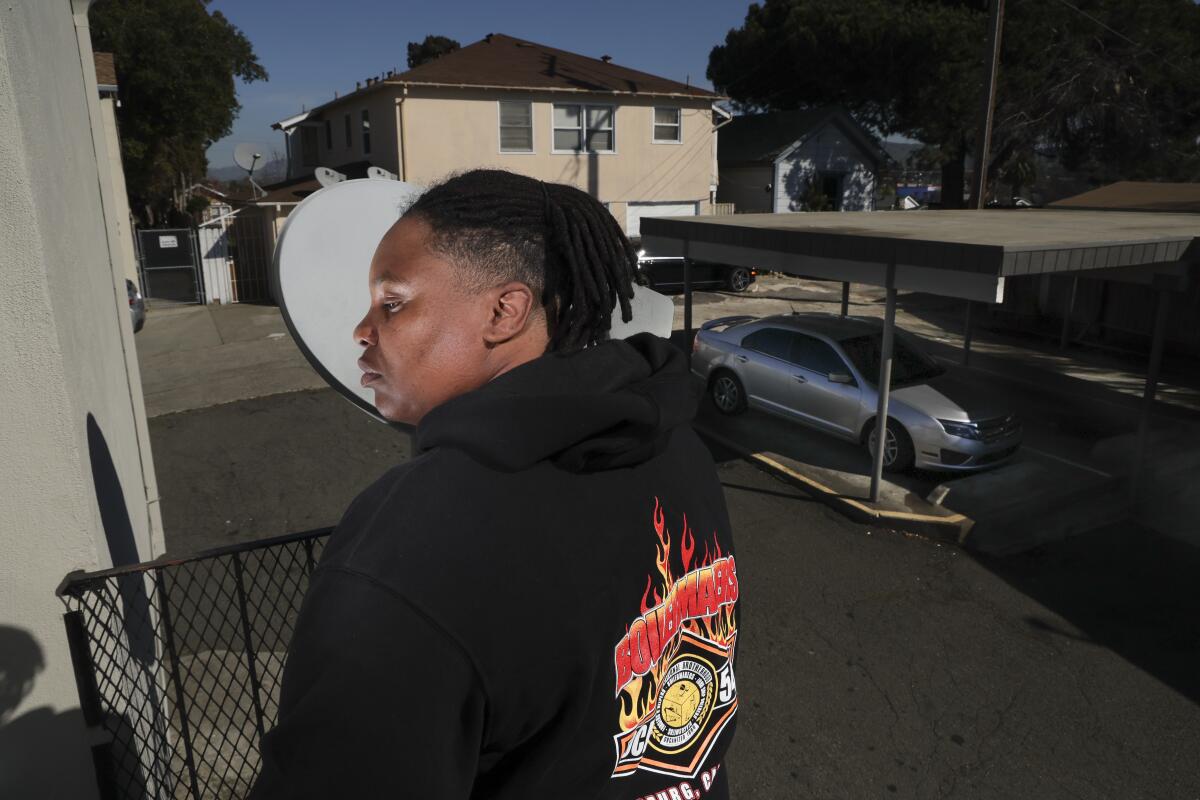
The two men would laugh at her and regularly referred to Black workers with racist slurs in English and Spanish, she said. When she objected, they would say “Shut up, n—.”
She complained to her supervisor, who was white, and also to HR, but said she saw no evidence of any follow-up. Tesla said Romby never complained about racial slurs or discrimination.
In March, after Romby had suggested safety improvements on forklift routes that were then implemented, she was honored with a performance award certificate at a staff recognition luncheon.
She said that only made co-workers jealous, and the harassment escalated.
After her complaints to HR, Romby said, she was shifted to a more strenuous route, where she had to lift as many as 100 heavy packages a day without help. Non-Black workers on that route worked in pairs, she said.
During downtime at the factory, when parts or trucks were delayed and line work slowed, only Black workers were ordered to do “general cleaning,” Romby said, getting on their hands and knees to scrub floors and wipe beneath shelves, while white and Latino employees were allowed to take rest breaks.
On the assembly line, Black workers were given the most arduous jobs, such as installing dashboards, she said.
When, as a result, Black workers caused bottlenecks or mistakes, Romby would overhear supervisors say, “Them n— over there … they’re lazy.’ But they were working as hard as anyone,” she said. She reported the slur in her complaint to the state.
Workers called Tesla’s factory “the plantation,” and “the slave ship,” not just for the brutal work pace that everyone experienced, but especially because Black workers were routinely segregated into a corner of the factory that lacked air conditioning and work conditions were most crowded, Romby said.
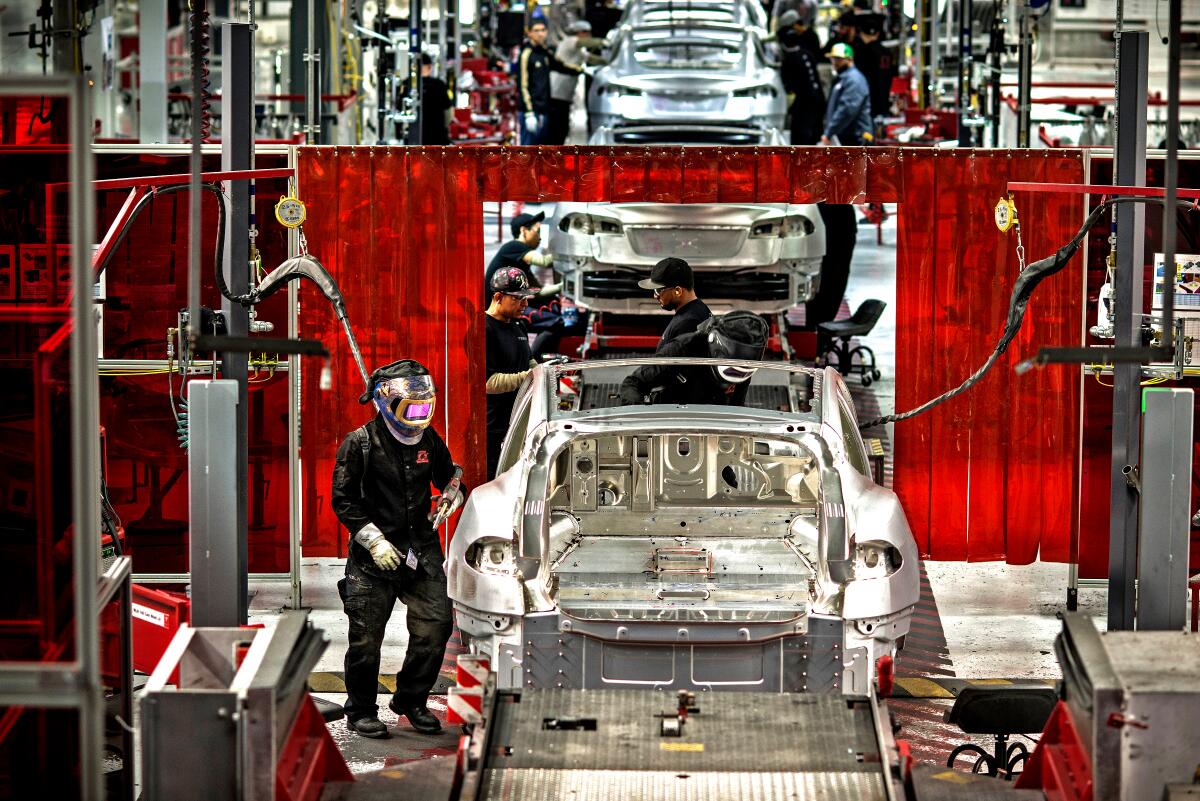
“There were hardly any white workers over there. It was hell in the summer.”
Romby’s complaints to human resources officials only led to her being shifted to different departments where harassment would continue, she said.
By December 2018, she said, “I was at my breaking point.” She visited a psychologist at Kaiser Permanente and took a month’s medical leave because of stress.
While away, she wasn’t paid because hours after filing papers for the leave, HR emailed her that she was “under investigation for supposedly threatening someone,” she said. Baffled, she asked whom she had threatened, and was told it was someone on the day shift.
But she had worked the night shift.
“People on the day shift told them, ‘We don’t know her,’” Romby said. “It was just a bunch of B.S.”
When she returned, Romby was shifted to a new position. She continued to be badgered by supervisors, she said.
In March 2019, she quit. “I felt like I was forced out,” she said.
Now Romby has a new job working as a welder and mechanic through the local boilermakers union, where, in contrast to Tesla’s nonunion workplace, if anyone harasses you, she said, “We notify our union reps, and it gets taken care of right away.”
In a statement, Tesla said that “Romby had multiple co-workers complain about her unprofessional and threatening conduct.... An investigation revealed she forcefully poked a co-worker in the face two times and threatened to ‘whoop his ass’ because she believed he was talking about her behind her back.”
After two written warnings, Tesla said, Romby complained “her supervisors were unprofessional toward her, but never stated that these supervisors used racial slurs or treated her differently because of race.”
While regulators investigate a spate of Teslas steering themselves into parked vehicles, Tesla owners have been reporting faulty collision-avoidance systems.
Organ, Romby’s attorney, said she contests Tesla’s allegations, and did so in a March 2018 complaint “where she wrote that she ‘only stood up for herself to be left alone.’”
“Despite its legal duty to produce employment records to Ms. Romby as required by the California Labor Code, Tesla has never provided her with any investigations into her complaints about inappropriate conduct at the factory,” Organ said.
‘That was salt in the wound’
Nigel Jones was 22 when he started working at Tesla’s Fremont automobile assembly plant in 2016. He’d just finished a three-year stint in the Army as a supply specialist, with a posting in South Korea.
His first job at Tesla was simple: keep tanks on forklifts filled with distilled water so they didn’t overheat. At first, he said, “I loved working there, I’m a people person, I love talking to people, and our job was essential because if the equipment goes down, the factory’s not running.”
He did pick up on some ominous overtones as he moved around the factory. He’d overhear white supervisors berate Black, Asian and Latino workers, often directing the N-word at Black employees. “Things like, ‘Tell that n— to get over here.”
When he asked fellow Black workers about it, they told him to think twice about complaining, because, he had been told, those who had taken similar complaints to human resources wound up out of a job.
But he liked his boss at the time, the money was good and “I’ve always been the type who says, ‘Hmm, OK. That just happened. Let it go, keep the positive vibes.’”
Jones was promoted to fleet manager, in charge of keeping the factory’s forklifts and carts on schedule, maintained and repaired. He was originally hired as a contract worker, but then the company took him on as a full-time employee. He believed he was on his way up. “But when I became full time, things started going downhill very quickly.”
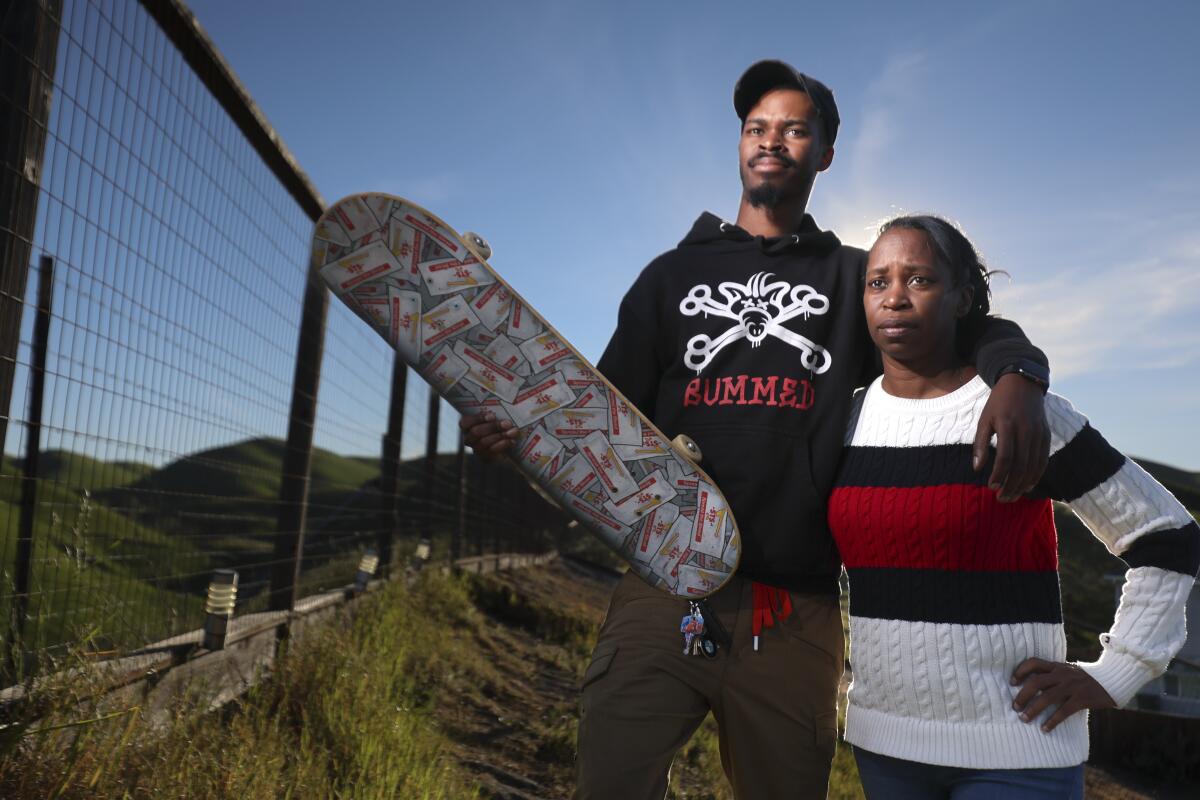
He assumed he would “be going to the supervisor meetings and getting integrated” with other managers. “But I was young and Black and didn’t get invited to anything. I was outcasted from the get-go.”
He had ideas for improving the fleet but said he was never taken seriously. “They didn’t like how much the company was spending on equipment, but they wouldn’t hear my suggestions on how to cut costs. I said if you people put more money into training people [to use the equipment properly] rather than buying new equipment, you could save a lot of money. Never once did that start to happen.”
Soon after his promotion, his new boss, a white man, started attending the meetings that Jones was excluded from.
His previous boss had been a good communicator, Jones said. But with the new boss, “we’d miss communications. He wouldn’t be telling me things I needed to know. It seemed like he was trying to make me look bad, like we weren’t doing anything.”
The man called him and two Black co-workers “monkeys,” he said. “Once, he walked away saying, ‘Oh you lazy n—.’ We looked at each other and said, ‘What?’”
That happened in December 2017, Jones said. A few weeks later, he told his mother, Rhonda Lockhart. Reached by phone, Lockhart said she recalled the conversation with her son, which she found troubling. “I had to explain to Nigel that for a manager to call you the N-word, that’s not normal.” She contacted a lawyer, and her son became part of the Department of Fair Employment and Housing lawsuit.
The supervisor, who now works for another company, did not respond to emails and a phone call from The Times.
Though he feared he might be fired, Jones felt compelled to report the racism to human resources. His first meeting went well, he said. The woman assigned to his department, whom he identified as Tori Tanaka, “seemed to want to help.” (Tanaka, who no longer works at Tesla, could not be reached for comment.) But at the next meeting, there was a different woman who to Jones seemed less concerned. Called in a third time, he was fired.
“They didn’t tell me why, only that I wasn’t a good fit for Tesla, and later I found out it was for safety and attendance violations, which I never once had a write-up for.”
A colleague at a different Tesla facility offered to hire him there, but then told Jones he had been “blacklisted” from the company. “That was salt in the wound,” he said.
The Tesla that jumped the crest of Baxter Street went viral. But to resident Jordan Hook, it was just the car that crashed into his Subaru.
Tesla disputes that Jones was fired without warning, saying he “was reprimanded numerous times for documented attendance and safety violations” and for “walking off the job.”
Asked to provide records of Jones’ violations or reprimands, Tesla did not respond.
The company said it has no record of “Jones making any race based complaint during his employment at Tesla.”
Jones said he was never reprimanded for any workplace issue.
He had testified under oath about the prevalence of the N-word at Tesla in two recent arbitration cases brought against the company by former employees. In one case, the arbitrator awarded a Black worker more than a million dollars.
Organ, his attorney, said Jones complained to HR about racism on Dec. 6, 2017. Shortly after that, Tesla “began looking for a reason to fire him.” Jones was terminated on Feb. 13, 2018.
Jones now runs the skateboard company he founded, Spread the Shred. Sometimes he thinks about Musk, who once told employees who were targets of racism to get a “thick skin.”
“He has good ideas,” Jones said. But “if you don’t humble yourself a little bit, it will bring you down the wrong path. You might think you’re doing the right thing, but you’re not.”
Times researcher Scott Wilson contributed to this report.

